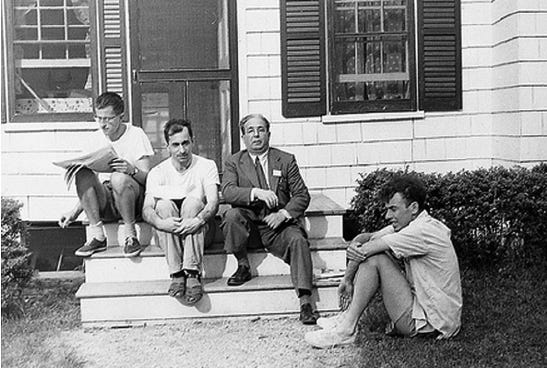
This piece is a part of a FreakTakes series. The goal is to put together a series of administrative histories on specific DARPA projects just as I have done for many industrial R&D labs and other research orgs on FreakTakes.

This piece is a part of a FreakTakes series. The goal is to put together a series of administrative histories on specific DARPA projects just as I have done for many industrial R&D labs and other research orgs on FreakTakes.

I’ve taken to calling the pieces I write for FreakTakes “administrative histories.” The reason I opted for that name instead of “progress studies histories” or “metascience histories” is that it was the name that drew the fewest confused stares and/or eye rolls from the scientists and engineers whom I hope to attract.

Don Swanson’s career started on a path familiar to many who read this blog.

This post is an accompaniment to Tony Kulesa’s excellent piece on the history of Y Combinator. Many in Silicon Valley think of Y Combinator (YC) as the sum of its services. The services are, in short: cash, a network, and guidance for early-stage (mostly software) founders. The YC model and its effectiveness have become widely known and understood in Silicon Valley.

Check out my guest post for the ChinaTalk Substack on recent innovation in the sport of jiu-jitsu and how it can help us think about OpenAI’s future.

From a historical perspective, the burden of knowledge hypothesis is flimsy. For those who don’t know, I’m referring to the hypothesis that scientific ideas get significantly more difficult to find as knowledge continually progresses. My lack of faith in the hypothesis does not stem from some knee-jerk reaction against hypotheses that imply human progress will slow down. In fact, I used to assume that the burden of knowledge hypothesis was true.

Works in Progress released a piece from me diving into Thomas Edison’s Herculean contributions as a technical entrepreneur. He was not often the first to invent the technologies which his name has become synonymous with, but he did not even see himself as an ‘inventor.’ We have a word for people like him now: technical entrepreneur And he was the best ever.

(Spotify link here if you prefer) To accompany my piece in the coming issue of Works in Progress on Thomas Edison, I’ve put together the first-ever podcast episode for this Substack. It mostly dives into stories that didn’t make it into the Works in Progress piece, so please check that out in a few weeks!

This was initially a section of my larger Bell Labs post. It would have come between the “Freedom comes in many forms” and “The mobile phone system” sections. I am publishing the section in a separate post because it would have been needless detail to ~85% of the readers.

Many new science orgs are looking to pursue research that has the positive aspects of both “applied” research and “basic” research. To me, this is a very reasonable approach. After all, the “applied vs. basic research” distinction has always been a rather arbitrary one. Some research projects feel like they are squarely in one bucket or the other, but it’s not always that clear.

This piece is noticeably longer (twice the length) than the others on this Substack.